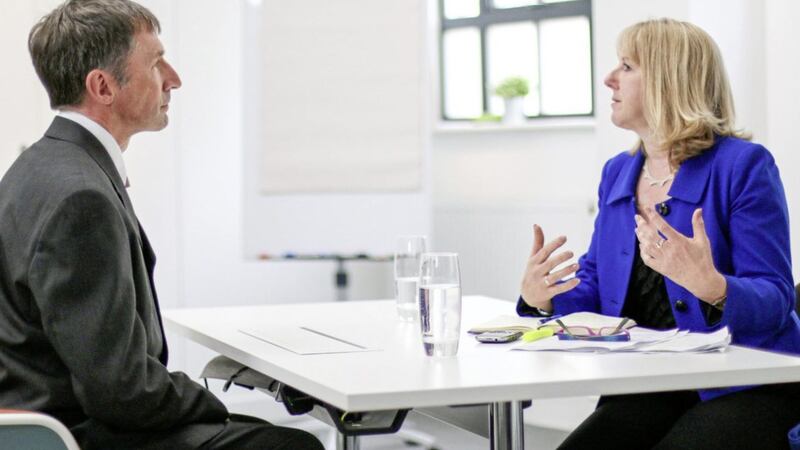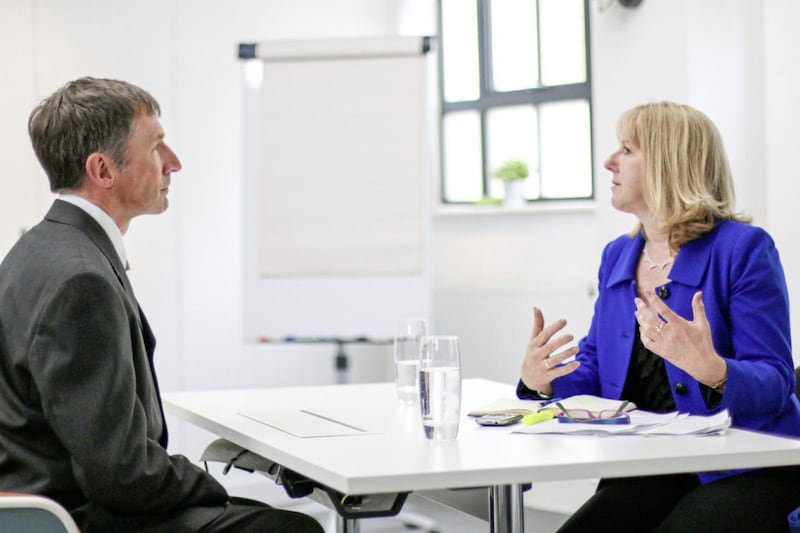Employable Me, BBC 2, Monday at 9pm
Good television is often about casting the right characters and Employable Me got this spectacularly right.
The premise of the show is that an expert team guide back to work people with a range of disabilities who have been abandoned by the jobs market.
This is the benefit system from the other side. Not the ‘on the dole and having a laugh at the state’ type show, but people who are desperate for the self-esteem brought about by working for a living.
For the series to work, however, we must connect with the hopes and dreams of the struggling job seekers.
The two in focus here were Andy, a 52-year-old former motorsport journalist and director of a motorbike business, struck down with a stroke. He had issues with one side of his body and a related condition which affected his speech.
Nonetheless, Andy’s enthusiasm was infectious and inspirational. Before meeting the expert team he had made 3,000 job applications and only got one interview.
He was determined to get back into work and believed that the best route, despite his issues, was in public speaking. We followed him as he visited a company which booked jobs for after dinner speakers and watched him ‘perform.’
While he struggled to be coherent occasionally, Andy, who has something of the Michael Palin about him, won over his audience with his story of overcoming adversity.
He finally got a job with a social enterprise when his speech at the local university convinced a sizeable number of students to volunteer with the charity.
The moment when Andy was offered the job was one of the most joyous things on television this week.
Our other job seeker was Ryan, a 22-year-old whose Tourette’s was so severe that his neurologist thought he may have the worst case in Britain.
Turtles, reptiles and tropical fish seemed to calm him down, so Ryan tried out for a job at his local fish pet shop.
The owner was unsure after he greeted a couple of older clients with the outburst “coffin dodgers,” but no one took offence and Ryan got the job.
We can only hope that both Ryan and Andy would have been successful without the help of having television cameras as witnesses.
***
Storyville: Last Men in Aleppo, BBC 4, Monday at 10pm
Because of the difficulties of reporting from a battle zone where one side may behead you, we are increasingly relying on this kind of fly-on-the-wall documentary.
BBC 4 has already broadcast a number on the war in Syria.
This was the story of the ‘White Helmets’, or the Syrian Civil Defence, who risk their lives to rescue people from the rubble of their homes after bombing raids from Russian or Syrian regime forces.
It was troubling and depressing viewing and at 100-minutes long requires determination to get to the end.
There is no shirking here from the realities of the devastation caused by a bomb dropped from the sky. We see hands, feet and other body parts in the rubble and numerous dead and severely injured children.
We follow a number of the volunteers, particularly Khaled, as they watch the sky anxiously and then rush to the scene of the flames and return exhausted to their emergency centres where they discuss the future of their city and whether they should try and get their families to Turkey.
But the film has his difficulties. Without a narrator we are never told what part of Aleppo we are in (only that regime forces are in the centre) and who they protagonists are. Russia and Damascus are the enemy but we never see any friendly forces such as the Free Syrian Army or Al Nusra Front.



